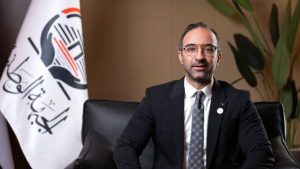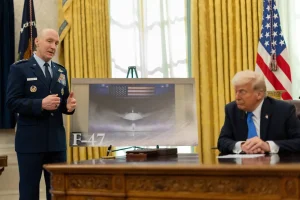When political Islam replicates archaic discourses to legitimize its rhetoric, it recalls the historical formation of linguistic heritage and heritage linguistics; that is, it searches for cultural accumulations to reinforce the legitimacy of its identity, so it can function by penetrating the political accumulations linked to daily individual ijtihad and its social interactions. This is to mold them within a sacred framework and religious attire that renews its language, making the reception process capable of re-diagnosing new mechanisms controlled by the religious authority dominating the daily life, with constraints of mythologizing reality and transforming it into an imaginary pattern not surpassed in the collective unconscious.
The late Mohammed Arkoun worked on exploring contemporary thought by researching Islamic reason. He rejected the notion of what he called Islamic geopolitics as defined by orthodox theological views. He started his research from the premise that the Quran is a text of multiple meanings and open to interpretations, but he acknowledges the difference in its reading due to the plurality of ethnic and cultural groups that drew from Islam elements shaping their identities. Today, we speak of Saudi Islam, Pakistani Islam, Moroccan Islam, etc. He sees that Islamic thought has retreated from criticizing the concept of orthodoxy in Islam, which reflects the unifying power of Islam since orthodoxy means ideological appropriation of the religious message.
Where does religious ideology renew itself in Islam according to Arkoun? He strongly denies this because religion transcends from all sides what we call ideology within the Marxist framework. He views religion as a phenomenon that penetrates history, societies, and cultures and surpasses them. By its linguistic and semiotic definition, it mobilizes myth, symbol, wisdom, metaphor, and founding stories, unlike ideology in modern thought. Ideology is merely ambitions or claims using vague and undefined concepts, often exhausted and lacking semiotic and meaningful references. Islam has demonstrated its strength outside the framework of ideology production, according to class relations and conflicts in the Marxist sense.
Arkoun does not exclude other religions; he calls Judaism, Christianity, and Islam the religions of the book, in the ideal and sacred sense of the word, meaning they rely on an originally oral text that later became a written text, becoming an absolute reference. Mohammed Arkoun holds a historical position that religion as discourse has not been formulated scientifically to move beyond the theory that religions are mere ideologies…
Arkoun was intelligent in distinguishing, for example, between Islam and Christianity; Islam as a religion relies on the book, the Quran, as a comprehensive reference, unlike Christianity which focuses on the figure of Christ, claiming he represents the incarnate divine word. However, Christians must refer to the Gospels in their practical practices, although they do not have the same status as the Quran because they were transmitted by different people and are not identical.
Arkoun sees that the Quran and the Gospels share having undergone the same process of excision, selection, compositions, projections, and inferences to respond to the demands of individual and collective imagination. The discourse of ideology or orthodoxy, as Mohammed Arkoun calls it in his book “Islamic Reason,” is present among both Shia and Sunni currents. After the Prophet’s death, there was no sovereignty or authority, often controlled by political, social, and geographical conditions. He also points to religious orthodoxy through examples he calls ethnological diversity; for instance, the religious character of mountain inhabitants in Morocco preceded Islam in Morocco, and the Almoravids introduced Islam but consolidated previous local beliefs by giving them an Islamic character, unlike the plains where popular Islam spread easily, represented by zawiyas. This reasoning by Arkoun is within Sunni Islam but may differ when discussing the historical conflict between Sunnis and Shias.
However, Arkoun was aware that both belong to what he calls the hard core of Islam through their shared references represented by the Prophet and the Quran, which are undisputed, but the disagreement is theological related to different memories and heritage, also controlled by geographical conditions; Sunnis rely on Al-Bukhari, for example, and Shias rely on Al-Kulayni who recorded the heritage of the twelve Imams, in addition to disagreement over text interpretation. Sunnis invoke the literal and grammatical interpretation of the Quran, while Shias rely on esoteric interpretation.
Mohammed Arkoun succeeded in establishing a new reading in the history of Islamic reason, and one of his major conclusions is that society generates religious expression through historical turning points and social milieus where the religious phenomenon is very strong, as shown by its daily presence in global intellectual and political discourse.













Recommended for you
Talib Al-Rifai Chronicles Kuwaiti Art Heritage in "Doukhi.. Tasaseem Al-Saba"
Exhibition City Completes About 80% of Preparations for the Damascus International Fair Launch
Unified Admission Applications Start Tuesday with 640 Students to be Accepted in Medicine
Egypt Post: We Have Over 10 Million Customers in Savings Accounts and Offer Daily, Monthly, and Annual Returns
His Highness Sheikh Isa bin Salman bin Hamad Al Khalifa Receives the United States Ambassador to the Kingdom of Bahrain
Al-Jaghbeer: The Industrial Sector Leads Economic Growth